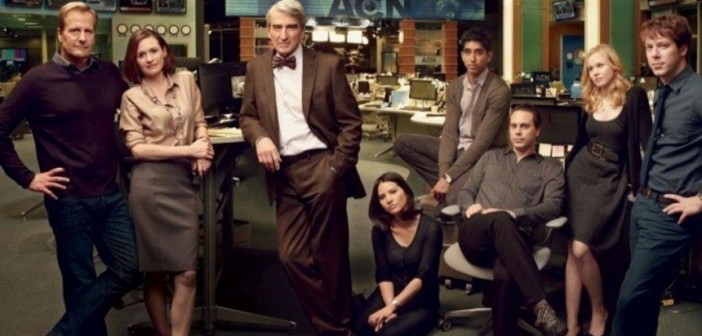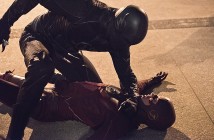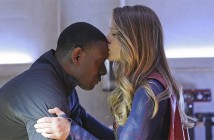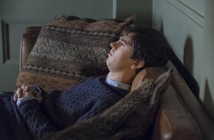The term “fanboy” and “homer” are overused, unnecessary jabs that aim to undercut opinions by claiming the person who holds that position is unable to arrive at objective or fair conclusions thereby allowing their opinions to be dismissed without being heard.
I abhor such practices even in the most casual conversations but it is only fair to point out to the reader of this piece that if there is one area in which I qualify as a “fanboy” it is in the area of anything — anything — written by Aaron Sorkin.
Other than the last few episodes of Studio 60 on the Sunset Strip, I have seen all of Sorkin’s work and find that it hits the sweet spot for me no less than 90 percent of the time. I can think of no other actor, writer, or director who comes anywhere close, in my book. I have seen every episode of The West Wing at least three times, most of them more than that, so if you clicked on this piece hoping to see another writer slam Sorkin for his critique of their job performance in The Newsroom, his newest show on HBO, you have come to the wrong place.
I’d also like to put off most analysis of the entire show and my defense of it’s overarching concept, design, and execution for a later date. For now, let’s jump right into where we are now: smack-dab in the middle of Season 3, which in my opinion, has been the best season thus far.
The third, and sadly final, season of The Newsroom will only give us six episodes to digest but they are brimming with strong themes including the current state of source-based journalism, national security leaks, old media versus new media, trust between agencies of society as well as between co-workers, and the impending doom of both the show on fictional network ACN and the show we are watching on HBO.
“Boston”
The first episode of Sorkin’s last season of television, according to him, begins in classic Sorkin fashion with a brief quiet moment where Will McAvoy (Jeff Daniels) and MacKenzie McHale (Emily Mortimer) discuss the details and expected silly shenanigans of their impending wedding — the big personal storyline from last season — which is interrupted by an explosion at the Boston Marathon.
The gang springs into action and is reassembled via extended montage. We meet the new and improved, bad-ass version of Maggie Jordan (Alison Pill) at the gym, immediately showcasing a new level of confidence and focus. She is also sporting a return to her medium-length blonde hair, a signal that her victim days are behind her.
Maggie’s ex-beau from Season 1, Executive Producer Don Keefer (Thomas Sadoski), is stuck in jury duty when he gets the call about Boston, inducing a perfect exchange between Don, the judge, and two lawyers which is equal parts clever and hilarious; a perfect microcosm of the Don character, which Sadoski is completely in the zone inhabiting.
The scene also features a brief cameo by Brent Jennings who plays Ron Washington in Moneyball, proving once again that however off-putting “Sorkinese” may be to some critics and television viewers, it is a delight for great actors even in bit parts.
Jim Harper (John Gallager Jr.) is at the office, of course, hunting down information on exactly what happened at the marathon when the audience is reminded of the tough spot our heroes are currently in due to their massive mishap last season. “Except for that one time, yes,” he tells someone who apparently didn’t take to the claim that ACN is the most reliable news agency going after their bungling of the “Genoa” story wherein they reported an instance of military overreach that never happened.
Quick cut to Jim’s girlfriend from the Romney campaign, Hallie Shea (Grace Gummer), who has apparently joined up with the News Night crew and is tracking the events on Twitter, a welcome sight to our old tech-savvy pal Neal Sampat (Dev Patel) who is about to be given a leading role for the season.
The first punch is thrown in what is likely to be a season-long boxing match between old and new media when Neal and Hallie (and also Fox News) feel comfortable reporting tweets as confirmation of a bomb, Neal even adding that “social media will solve this crime” but Jim fires back, “Crowdsourcing law enforcement; that worked well in Salem.”
When our do-gooders who live on concepts like “journalistic malpractice” refuse to break in with news based on the tweets, the show cements this battle as a central theme with a Halley and Neal back-and-forth: “You realize the explosion occurred in the 21st century, right?” “Welcome to ACN.”
This is a comment on both the current state of the news media and also what is happening to the show we are watching. Sorkin seems to believe, on some level, that his adherence to old-school writing styles and structures — and even the ethics preached and practiced on the show — stand at odds with the microwave Twitter generation. I’m inclined to disappointingly agree and it is not the last time the subject is broached.
Next we jump to Olivia Munn’s Sloan Sabbith who sits at an impressive computer set-up designed to help her analyze huge amounts of financial data but really serves as a vehicle to plant and foster the seed of the main personal story-line for our characters this season; the potential purchase of ACN and therefore the job security of everyone on the show.
In the following scene, a third major plot-line of the season is rooted when Hallie tells Neal that someone wants his encryption. The idea is put aside in joking fashion but this is the beginning of Season 3’s Genoa — a fictitious national security story that unfolds over the course of a whole season — except this time the story is true.
There is a quick hit with ACN President Reese Lansing bemoaning the delay in airing the Boston story, but still firmly in his new position like a WWE personality who made a turn from “heel” to “baby-face” at the end of last season.
Back at the office, my favorite moment of the series to this point plays out through a bungled attempt by Will to deliver the quintessential Aaron- Sorkin- sappy- motivational- monologue, which has been spoofed in many a format by everyone from Saturday Night Live to Amy Schumer.
So why shouldn’t Sorkin himself get a turn?
The fumbling of the speech even includes him ripping off a line spoken in Season 1 by Mac, which she mentions as Will continues to clunk along in a fourth-wall breaking nod to both his critics and fans over the concept of “Sorkinese.”
I find the Youtube videos lampooning Sorkin for reusing lines, or for his pacing, to be pretty funny but feel anyone who takes them seriously as a criticism of his writing is overlooking the sheer cascading mass of cliche that litters most of the rest of pop culture especially in music, movies, and television.
I hope when The Newsroom is gone, we can fill it’s place with the 28th vampire show on TV, or maybe something featuring cops, doctors, detectives, lawyers, or other members of the genre South Park brilliantly dubbed “murder porn.” When you are exactly as slow, simple, and unoriginal as everyone else, it’s hard to single you out to lampoon.
As Will wraps up his failed monologue, Elliot makes a plea to travel to Boston to cover it in person, Jim suggests Maggie go along to produce, and Will throws down the gauntlet that she better not mess up or she will find herself unemployed.
At the ten minute mark of the episode we have reintroduced the cast, developed them a bit, reminded the audience of the major plot-points from last season and introduced many of the main elements of this one.
This is great TV.
The middle section of the episode gets into some of the specifics of the Boston bombing, establishes Neal’s first direct contact with an important source, develops the “show is in trouble” angle during a lunch Sloan has with a friend from Goldman Sachs which starts her on a hunt to eventually find out that someone is trying to buy ACN.
Reese reveals to her that he has a half-sister and brother and they are about to inherit 45 percent Atlantis World Media, which owns Atlantis Cable News. Don then interrupts and we are treated to a nice bit of comic relief in the form of he and Sloan’s relationship role reversal punctuated by her assertion, “I don’t care that you’re dumb and, Don, I mean it.”
Seriousness resurfaces in a cut to a conference room where Neal tells everyone, “Somebody is trying to give me classified government documents.” Several long-arching story-lines are set in motion as we are clued in that this season will tackle the Edward Snowden/Julian Assange issue in it’s own way. We also have a key character exchange when Will gives Neal his credit card to buy an air-gapped computer.
There is also a nice crossover of themes here as it is the internet people — whom Neal admits tend to have a larger ratio of crazies and whom Will does not wish to crowd-source the news to — who will be key in uncovering one of the biggest stories of the decade. And in order to get the story, aka the truth, Will must aid in the procurement of and trust in advanced technology directly.
This juxtaposition rises again when both the “old media” and the “new media” fail to properly identify the suspects in the Boston bombing.
First, John King makes a false report then the New York Post incorrectly pictures two men on their cover and later a series of unfortunate events starting on Reddit and moving to Buzzfeed and Twitter ends with horrifying results when the family of an innocent man is cyber-bullied with death threats.
Sorkin’s argument for the difference in these two occurrences can be found in Mac’s final statement in the meeting about the threats. “Well done, faceless mob,” she says. The difference between the way people react to a something in the world versus how they react to it on the internet is the sometimes superhuman feeling of being anonymous. It certainly helps explain Gamer Gate and this notion is mirrored in future episodes.
Mixed in with all of this, Sloan continues her hunt for who is buying what and gets a clue in the form of a pun, Will and Mac discuss their struggles (and Aaron Sorkin’s) with a Euripides metaphor — declaring that in the third act (season) our heroes are supposed to get down from the proverbial tree — and Neal receives what we will learn to be in the neighborhood of 27,000 documents.
Our attention is immediately drawn to a tragedy in the fictitious African country, making a return from The West Wing; The Republic of Equatorial Kundu. I’m sure some rolled their eyes, but I appreciate the fan service.
The final 20 minutes of the episode feature Maggie coming through in a huge way when her anchor suffers an allergic reaction, earning deeper trust from her colleagues, but more importantly finally putting the character into a perfect place. It is sad that we will only get six episodes of this Maggie.
The episode builds to a close out on a balcony that for some reason is becoming a star player this season. Nice views.
On the balcony, it is revealed to Will that the show is in fourth place (much worse than he thought) and Reese gets to deliver another iteration of the deeply important thesis of the show. “My mother and I can only keep you on the air,” he laments, “if you’re making money.”
In an allusion to both Keith Olderman upon whom McAvoy is somewhat based, and to Sorkin’s other works like Sports Night and Moneyball, Will muses on the notion of leaving all this behind for the wild world of sports. Naturally, as a “sports writer” I ate that up.
Neal joins the bigwigs, reveals he has the documents, and is grilled by the boss until he stumbles upon a moment in his method that could land him in a lot of trouble. Sloan makes the link that ACN is under assault from the twins and joins the growing crowd on the balcony to let everyone know that their jobs are in jeopardy, and Will mounts a spirited defense of the police force at an interesting time in the real world.
As the tension mounts, we are brought right back to the beginning when Will decides he can’t run from all of this because he is “going to be somebody’s husband.” Whatever ambivalence he may have left about the new direction since Mac’s arrival has been completely replaced by absolute devotion to her and the ideals she brought back into his world.
With that resolve, he submits in the final line of the episode, “We aren’t in the middle of the third act,” a reference to their earlier Euripides conversation, “we just got to the end of the first.”
If there were any justice, this statement would be true.
This moment signifies that this season will be as much about the characters and plots on screen as it is the television legacy of Aaron Sorkin.
And yes, the way the series is building toward it’s end is similar to what happened in Sports Night, and yes, I’m fine with that. The same question exists: will News Night be saved even though The Newsroom won’t be?
Part of me hopes it goes a different direction. But another part of me hopes that Dan Rydell and Casey McCall are still doing an hour-long, nightly sports show in another dimension. A better dimension.



